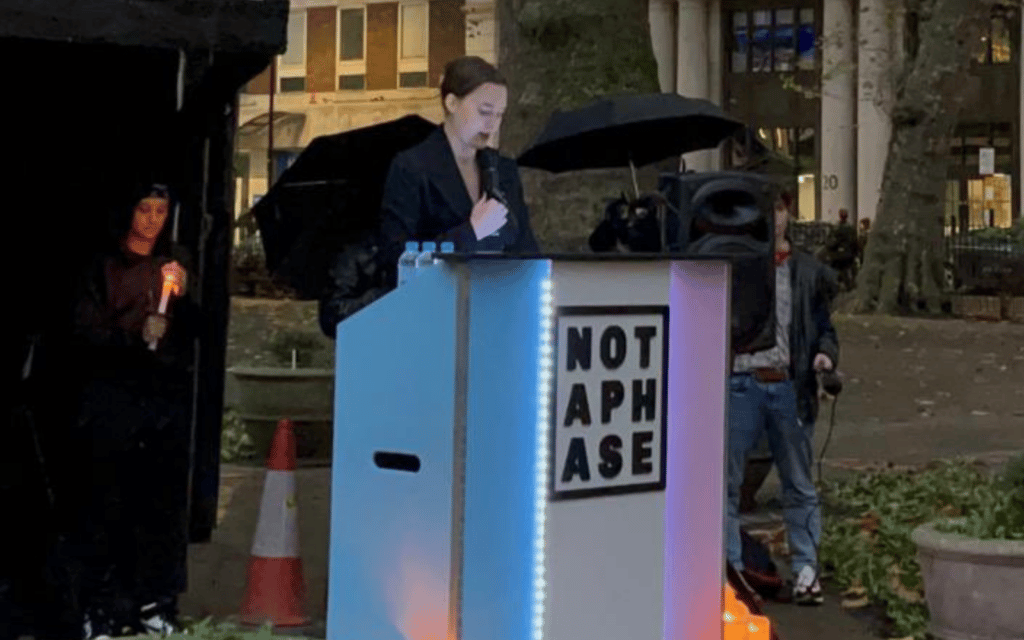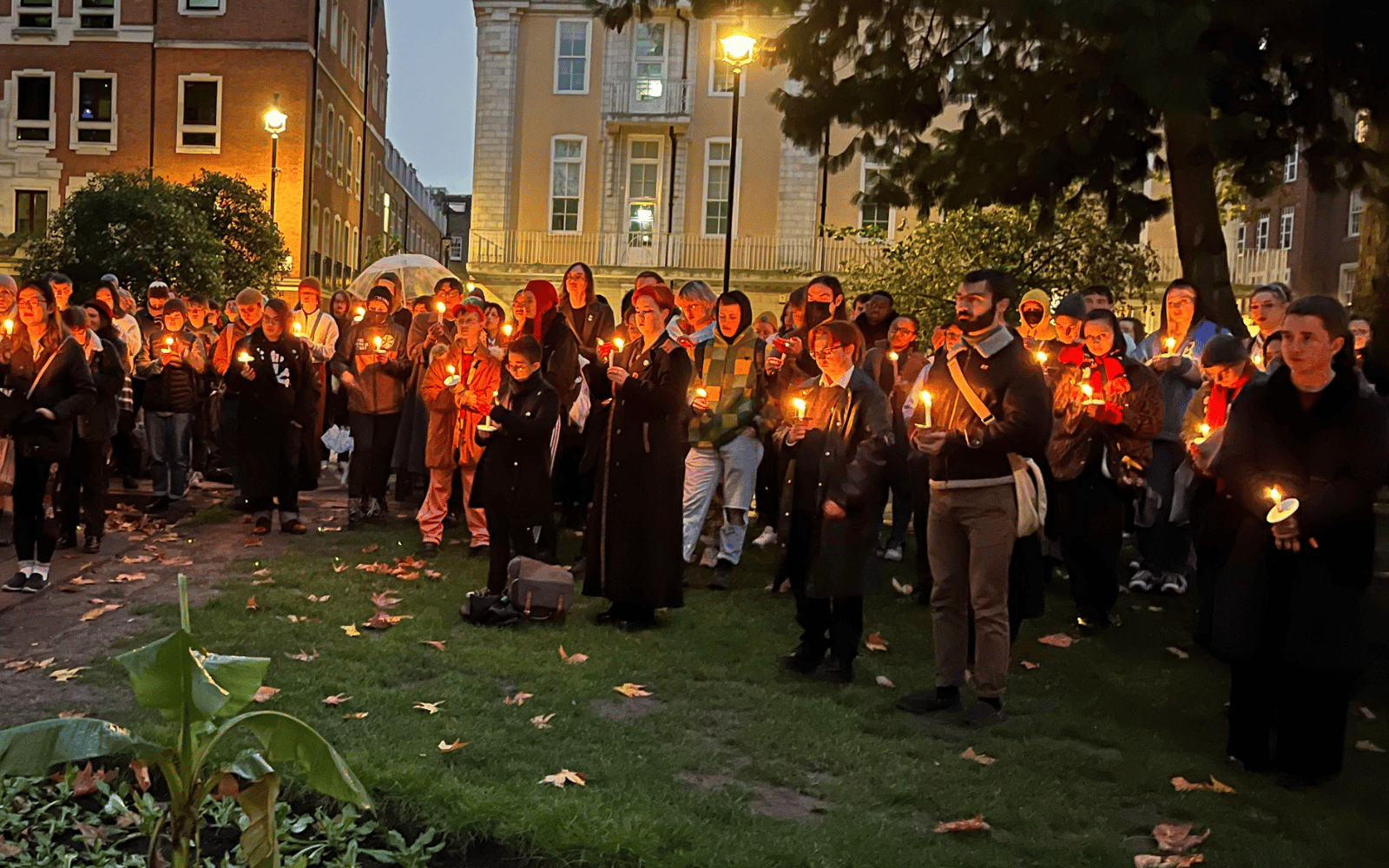Trans woman who died after 1,000 days on NHS wait list remembered by sister at vigil

Alice Litman, who had been waiting 1,023 days for her first appointment at the Tavistock and Portman Gender Identity Clinic, took her own life aged 20 in May 2022.(The Litman family)
Alice Litman, who had been waiting 1,023 days for her first appointment at the Tavistock and Portman Gender Identity Clinic, took her own life aged 20 in May 2022.(The Litman family)
The sister of a trans woman who died after years on an NHS wait list spoke of the struggles leading up to her death during a Trans Day of Remembrance vigil.
Kate Litman gave a moving speech during the Soho, London Trans Day of Remembrance vigil on Sunday (14 November) where she spoke about her sister Alice, who died on 26 May.
Joined by hundreds of people, she endearingly described her younger sister while shining a light on the issues she faced as a trans woman.
“How can I begin to sum up the totality of who she was? What should I say first? Are some parts of her more important than others?” Kate said.
“How can I condense 20 years of everyday familiarity into something you can understand?”

Kate Litman speaks during the Soho Trans Day of Remembrance. (Twitter/@Kate_lit)
Kate described how her sister would steal her clothes, adding: “I was so happy to have a little sister that I forgot to be annoyed about it.”
Despite feeling self-conscious, Alice handled herself “with beautiful fluidity and complete freedom,” she said, but her anxiety became too much.
In a poem, Alice wrote that going on public transport was exceptionally difficult and that “she felt safest in the dark”, opting to go on long walks home rather than catch a bus or a train.
Alice also struggled with the ever-growing waiting times for an initial consultation at a Gender Identity Clinic.
“After Alice died, we found she had recently reached out to her GP for support,” Kate said.
“This is what she wrote: ‘I’ve had [six] sessions of NHS counselling, I’ve tried private therapy with no benefit, I receive private hormone prescriptions. I am unhappy with my care.'”
Waiting lists for a first consultation with a gender specialist can reach as high as four years, and the administration of medication can take even longer.
A recent report from the advocacy group TransActual found that over 86 per cent of trans people have cited NHS waiting times as having a negative impact on their mental health.

Members of the trans community stand in silent solidarity for those who passed away in 2022. (PinkNews)
From Alice’s words, it appears as though this was true for her as well. She wrote that the “barriers [were] too overwhelming” for her.
“I’ve been on the Gender Identity Clinic waitlist for over two and a half years with no end in sight. I need an appointment, I am struggling. I often feel hopeless and helpless and feel life is not worth living.”
Alice died one month after writing the note, at just 20 years old.
She had waited for an NHS appointment for 1,023 days.
The reality of the ‘trans debate’
Kate Litman wrote about her sister in a July article for PinkNews, saying that she “can only hope the institutions that failed her will answer for its loss”.
“While Alice’s life was not without joy and love, the brutal truth that she died alone and in pain is inescapable,” she wrote. “As my family has grappled with this reality, we have gone over and over questions which boil down to trying to understand why Alice chose death over life.
“We will never have a straightforward answer to this question, but we keep returning to the fact that Alice faced powerful external barriers to her flourishing; barriers which were structural and deliberate.”
She further criticised the government for turning trans lives into “the latest wedge issue” and turning trans women’s lives into “theoretical pawns in a culture war”, especially in the realm of sports.
The Litman family created a fundraiser in honour of Alice’s memory, which raised £14,575 before being closed on 7 September 2022.
“Alice’s parents would particularly like to thank the generosity of Alice’s peers and the younger generation, who have given so freely,” a statement from Litman read. “We hope the money we have raised will fund a small part of the work we need to do to build a world in which trans lives can flourish.”

